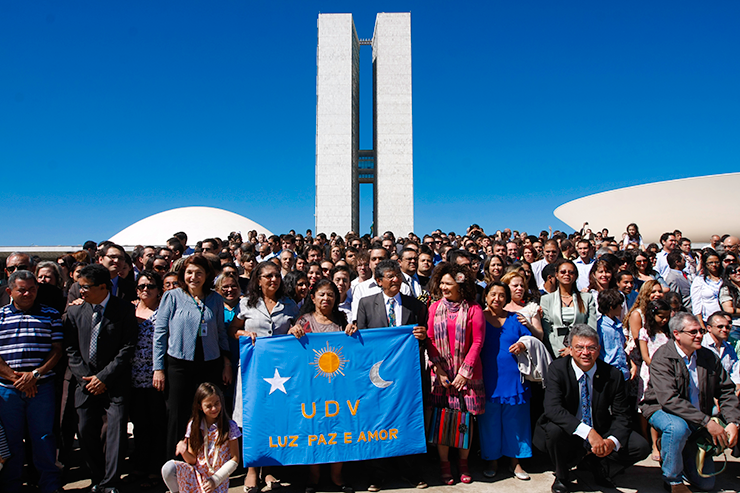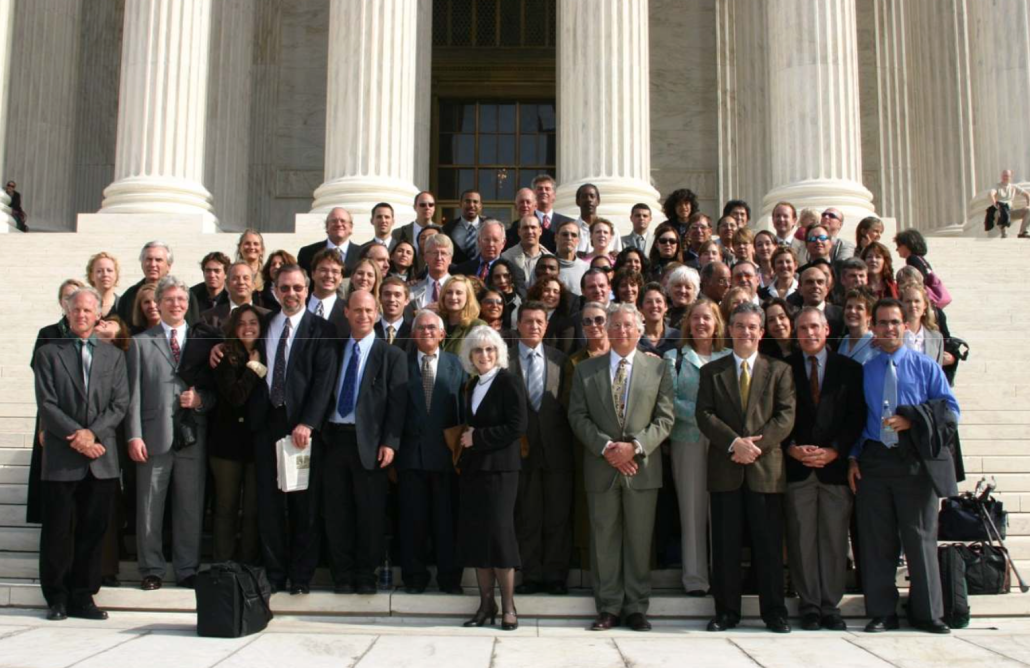Legal Right for the Religious Use of Hoasca Tea
The use of Hoasca Tea within a religious context is fully authorized and has been recognized by Brazilian authorities since 1987, given that it is proven harmless to the health. This fact gives peace of mind to the disciples of the Beneficent Spiritist Center União do Vegetal and other religions that commune with the Tea. It has also set institutional and legal precedence, allowing the UDV to grow in a continuous, sustained manner in Brazil and abroad.
This recognition from the authorities is the result of the major effort that the União do Vegetal had in defending its right to the religious use of the Hoasca Tea. This work began in 1965 when the founder of the religion, Mestre Gabriel, along with his family, moved to Porto Velho – Rondônia (Brazil), beginning the institutional organization of what would soon become the Beneficent Spiritist Center União do Vegetal.
In the second half of the 1960’s, and in the 1970’s, the effort of the União do Vegetal was directed towards the authorities of the former Federal Territory of Rondônia. In the 1980’s, the work was directed towards federal authorities with the transfer of the UDV’s headquarters from Porto Velho to Brasília-DF (Brazil). Since the beginning of the 1990’s to the present, these efforts expanded further, reaching the authorities of other countries where the União do Vegetal is present.
STATEMENT OF PRINCIPLES
In 1991, the main religious organizations that use the Hoasca Tea gathered in Rio Branco – Acre (Brazil) with the common objective of having the use of the regulated. A Statement of Principles was written as the result of that meeting, which included ethical procedures for the responsible use of the Tea as a religious sacrament. The Brazilian authorities supported the initiative.
In 2004, the Brazilian government instituted a multidisciplinary working group to assess and observe the religious use of the Tea, as well as to research its therapeutic use. They also created a national register of all institutions that use the Tea in a religious context. The working group was composed of representatives of the religious organizations that signed the Letter of Principles in 1991, in addition to members of the academic community and the government. The working group’s president was a government official, and Mestre Edson Lodi Campos Soares, a representative of the União do Vegetal, was the vice-president.
LEGAL CONSOLIDATION
In January 2010, the Brazilian government issued a resolution adoptingadopting the final report of the aforementioned work group. The document consolidated the procedures that were established within the Letter of Principles that had been signed in Rio Branco. The report asserts that the religious use of the Hoasca Tea is incompatible when used in association with unlawful psychoactive substances. The report further clarifies that The report also finds that religious use religious use is incompatible with the commercialization of the Tea, ayahuasca ayahuasca tourism, therapeutic use and the advertisement of the theeffects of the tea. The document also suggests measures to limit thenon-ritual use of the teas as well as other determinations and deliberations.
EXPANSION OF THE UDV
VICTORY IN U.S. SUPREME COURT
In 2006, in a historic decision, the U.S. Supreme Court unanimously approved the religious use of Hoasca Tea in the United States by the Uniao do Vegetal. This was an important step inthe international recognition of the União do Vegetal, opening a path to be followed by authorities in other countries where the UDV is present. This victory was achieved after a long judicial dispute between the União do Vegetal and the government of the United States.
Ten years ago, Justice guaranteed for the UDV in the U.S.
In May 21 1999, in the city of Santa Fe, New Mexico, U.S. Customs agents seized a container of Hoasca Tea, used exclusively by Núcleo Santa Fé (the first Nucleo of the União do Vegetal in that country).
For a period of 18 months, all efforts were made to negotiate the return of the container that was apprehended. Having been unsuccessful in obtaining the return of the Tea, Tea, and facing the risk of an indictment, the UDV filed a lawsuit in Federal Court requesting fullrecognition of the right of UDV members to commune with Hoasca Tea in their religious rituals.
In 2001, the Judge of United States Tenth District Court, granted a Preliminary Injunction enjoining the United States Government from further interference. The United States government appealed that and other subsequent decisions that were in favor of the União do Vegetal. In 2004, the government defendants appealed to the U.S. Supreme Court.
After almost six years, on November 1, 2005 – a consecrated day in the religious tradition of the UDV – the U.S. Supreme Court held a case hearing on the subject, reaching a unanimous and final decision on February 21, 2006, affirming the União do Vegetal’s right to the lawful exercise of its activities in the United States.
Currently,the UDV is present in seven American states: Colorado, California, New Mexico, Florida, Washington, Texas and Hawaii, gradually expanding its spiritist doctrine.
 English
English Português
Português Español
Español


